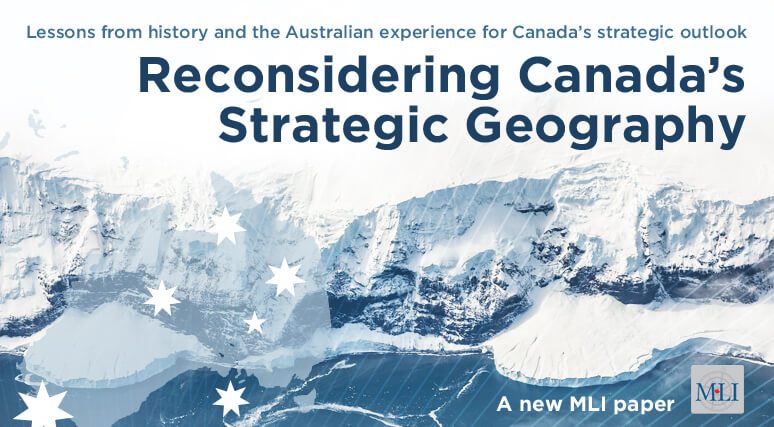 OTTAWA, ON (April 12, 2018): With domestic political stagnation in the US and persistent doubts around Washington’s resolve, it is time to reconsider the role of geography on Canada’s foreign and defence policy, write Andrew Pickford and MLI research associate Jeffrey Collins.
OTTAWA, ON (April 12, 2018): With domestic political stagnation in the US and persistent doubts around Washington’s resolve, it is time to reconsider the role of geography on Canada’s foreign and defence policy, write Andrew Pickford and MLI research associate Jeffrey Collins.
MLI’s latest study, Reconsidering Canada’s Strategic Geography, looks to history and the Australian experience in assessing the relationship between Canada’s physical geography and geographic position and the strategic competition between states.
A better understanding of Canada’s strategic geography would provide greater clarity on the threats that the country faces and what policies it should pursue to safeguard Canadian territory, population, and interests.
“We can expect greater competition in the Arctic,” said Collins. “Free-riding on the US security guarantee will prove more difficult. And the world’s centre of gravity seems destined to the Indo-Pacific.”
Canada might have enjoyed a relatively benign geo-strategic environment in the post-Cold War period. But we cannot assume such circumstances are permanent. To do so would only leave Canada vulnerable to what commentators have called the revenge of geography – as great powers once again compete for power and influence.
“The Australian experience is particularly informative for Canada,” added Pickford. “Without proximity to a close ally and superpower, Australian strategic choices have been informed by the reality of its geography.”
To address future security challenges, Canada needs to maintain its military-technology edge, and reposition its military assets in response to geopolitical threats. It also needs to response to global crises with greater consideration of the national interest, lest it results in diffuse and more limited impact – an outcome that Ottawa will likely discover with its mission in Mali.
For more information media are invited to contact:
David McDonough
Deputy Editor
613.482.8327 x108
david.mcdonough@macdonaldlaurier.ca




